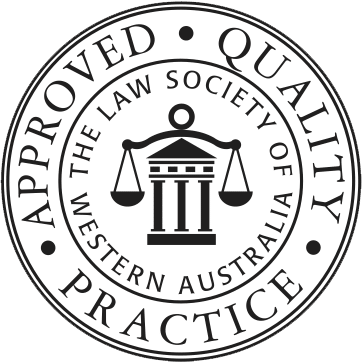Representation in Court
Sometimes reaching an agreement is just not possible. If so, we are ready to represent you in Court
If despite your best efforts it simply will not be possible to reach an agreement with your former spouse about property settlement, spousal maintenance or arrangements for the children, you will need to ask the Court to make a decision about what is to happen.
We are experienced litigators and will defend your rights in Court vigorously and effectively. In parenting matters, we will work with you to reach an outcome which is in the best interests of your children.
What does litigation in the Family Court of Western Australia look like?
Every case is unique. However, the following is a list of the major procedural milestones for most matters that are before the Family Court:
Parenting matters
- Before applying to the Court, a party must obtain a certificate from a registered Family Dispute Resolution Provider (unless a specific exemption applies).
- One party will file an Initiating Application together with supporting documents.
- The other party will file a Response to Initiating Application together with supporting documents.
- The Court will then list the matter for a Directions Hearing to determine how it should progress (this is sometimes referred to as the “First Return Date”).
- If there are risk factors in your case (such as family violence, drug abuse, neglect etc.), the Court may direct the parties to attend a Case Assessment Conference.
- If one or both parties have asked the Court to make interim orders, then following the Case Assessment Conference the matter will be listed for an interim Hearing (although, in circumstances of urgency, that Hearing may be listed beforehand).
- Once the Court has made a determination in relation to the interim issues, a Readiness Hearing is likely to be ordered.
- At this Hearing, if the matter is ready, it will be placed in the “callover” for Trial. The callover is an administrative sitting of the Court, where Trial dates are allocated.
- Your matter will then proceed to Trial.
Financial matters
- Before making an application, the parties are required to comply with the pre-action procedures set out in Schedule 1 to the Family Court Rules (2021).
- One party will file an Initiating Application together with supporting documents.
- The other party will file a Response to Initiating Application together with supporting documents.
- The Court will then list the matter for a Directions Hearing to determine how it should progress (this is sometimes referred to as the “First Return Date”).
- If both parties are represented, and are yet to attend alternative dispute resolution, the Court will likely adjourn the matter until the parties have attended a Mediation-Style Conference (or engage in a similar-type mediation process).
- However, if one or both parties are self-represented, the Court will instead list the matter for a Conciliation Conference before a Registrar.
- If one or both parties have asked the Court to make interim orders, the matter will be listed for an interim Hearing. Whether that Hearing occurs prior to or after the Mediation-Style Conference or Conciliation Conference will depend on the issues in the case.
- Once the Court has made a determination in relation to the interim issues, a Readiness Hearing is likely to be ordered.
- At this Hearing, if the matter is ready, it will be placed in the “callover” for Trial. The callover is an administrative sitting of the Court, where Trial dates are allocated.
- Your matter will then proceed to Trial.
If you live in the Northern Territory and need to commence proceedings in the Federal Circuit Court of Australia, the process is a little different to that which is outlined above.
We have significant experience in running family law cases in Darwin and the Northern Territory. If you don’t know what the next step is, we can help.
Let’s meet, and figure it out
For practical advice about what you should do next, please call to arrange a no-obligation initial consultation.
